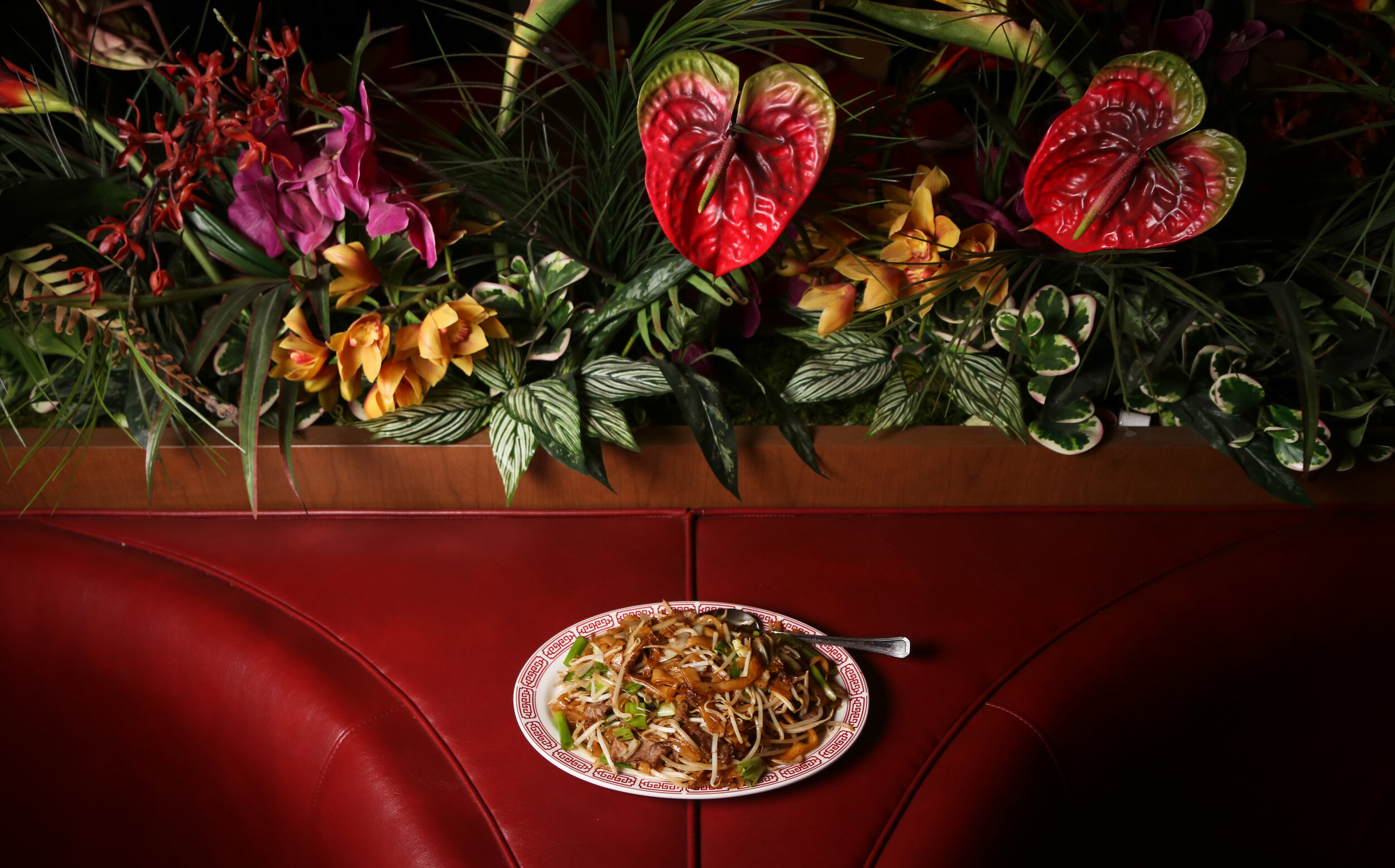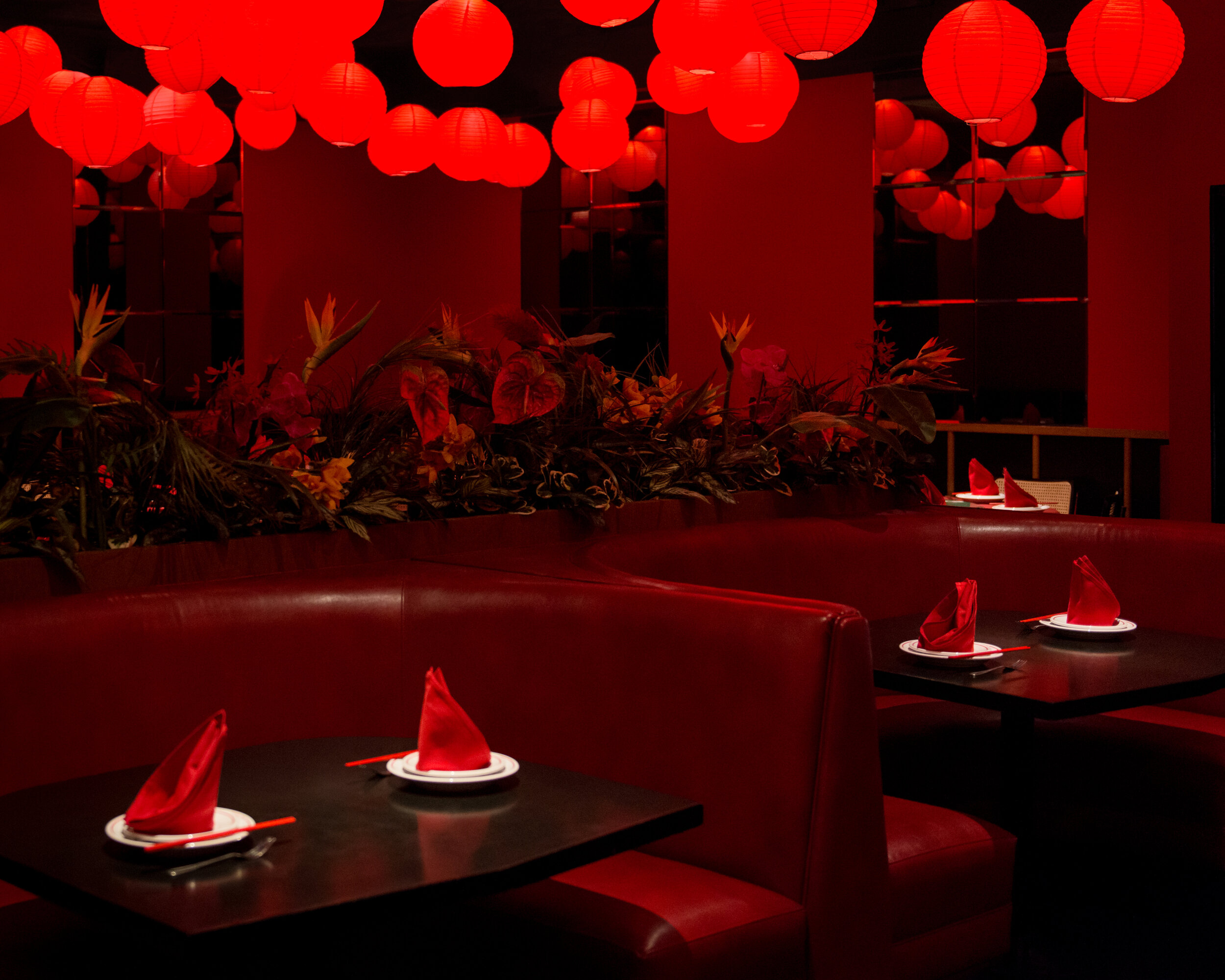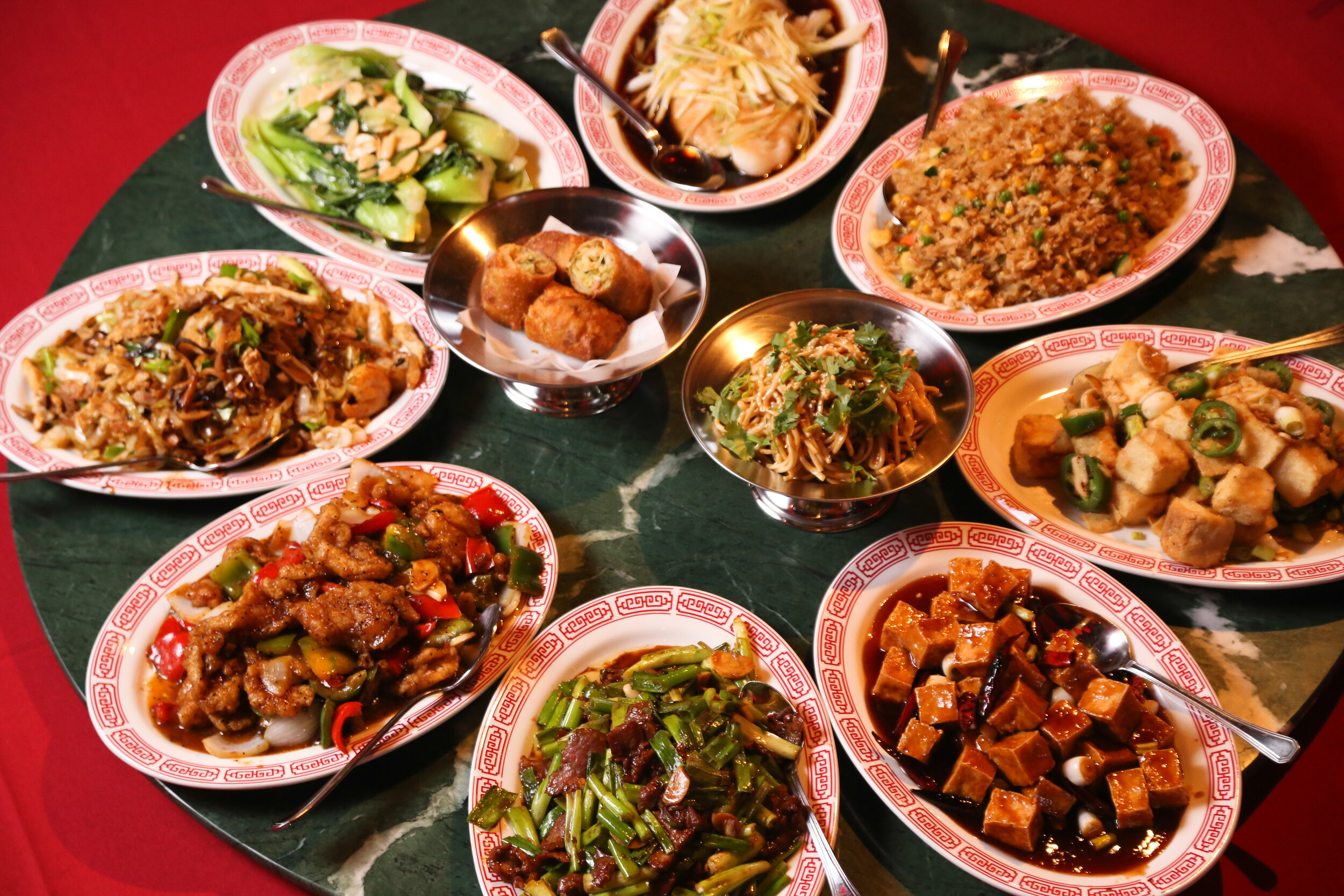Genghis Cohen - A Los Angeles Story
Table of Contents
- A Taste of History
- Allan Rinde - The Person Behind Genghis Cohen
- Personal Details - Allan Rinde
- What Made Genghis Cohen a Place to Remember?
- The Shifting Tides of Genghis Cohen
- Why Was the Original Genghis Cohen So Special?
- A New Chapter for Genghis Cohen - What's Different?
- What Can You Expect From Genghis Cohen Now?
- Ownership Changes at Genghis Cohen
- The Legacy of Genghis Cohen
A Taste of History
For decades, a spot on Fairfax Avenue has been a go-to for people looking for good food and, you know, some really cool sounds. This place, Genghis Cohen, has been a part of the Los Angeles scene for a very long time, serving up its own kind of special mix. It’s been a favorite for many, many folks, a place where, like, memories were made, and good times were had, too.
The story of this spot, it’s a bit of a journey, actually. From its beginnings as a place started by someone with a love for a certain kind of food, to becoming a landmark that, you know, people would talk about for its unique vibe. It’s a story about food, yes, but also about music and, in a way, about how places can really become a part of a city’s heart, you know?
So, what we’re going to look at here is just what made this place so special, how it came to be, and what’s happening with it now. It’s a pretty interesting tale, especially for anyone who, like, cares about the places that make a city what it is. We’ll go through the bits and pieces of its past, and what the future might hold, too.
Allan Rinde - The Person Behind Genghis Cohen
The whole idea for Genghis Cohen, it really came from a person named Allan Rinde. He was a music producer, you know, someone who worked with sounds and artists. At the time he got this place going, he was actually working right across the street, at a spot called Cherokee Studios. It’s kind of cool how his work in music, in a way, led him to open up a place that would become known for its music, too, isn't it?
Allan, he had this longing, you know, for the Chinese food he grew up with back in New York. Out here in Los Angeles, that kind of food, it was a bit harder to find in the way he remembered it. So, in 1983, he took what used to be a pizza place and, you know, changed it into what would become Genghis Cohen. It was, basically, his way of bringing a piece of his hometown’s food scene out west, which is a pretty neat thing to do, I mean, if you think about it.
He started with the food part, but then, later on, he added the music room. This addition, it really helped make the place what it was, a spot known just as much for the sounds it offered as for the meals. It was, in some respects, a natural fit for someone with his background, blending his love for food with his work in music. That’s how, you know, this whole thing got started, really.
Personal Details - Allan Rinde
| Role | Music Producer, Founder of Genghis Cohen |
| Founded Genghis Cohen | 1983 |
| Inspiration | Chinese food from his New York upbringing |
| Previous Workplace | Cherokee Studios (across the street from Genghis Cohen) |
What Made Genghis Cohen a Place to Remember?
Genghis Cohen, it became known for a few things that really made it stand out, you know. People would talk about its special Szechuan cooking, which, apparently, had a taste all its own. Then there were the egg rolls; those were, like, truly something else, often called the best around. But it wasn't just the food that brought people in, you know, it was also the live music performances, which were, like, really something to see and hear.
For decades, this place was serving up what many considered some of the finest examples of these things. It was a spot where you could get a great meal and then, just as easily, enjoy some really good tunes. This blend, it made the place, in a way, a landmark, a spot that people recognized as much for its sounds as for its flavors. It was, basically, a complete experience, you know, that kept people coming back.
The combination of these elements, the distinct cooking, those famous egg rolls, and the lively performances, made Genghis Cohen a unique fixture. It was, more or less, a spot that offered a full evening out, a place where the atmosphere was as much a draw as anything else. That’s what, you know, really helped it build its reputation over the years, making it a place people remembered.
The Shifting Tides of Genghis Cohen
Things, they change, you know, and Genghis Cohen is no different. This place, a landmark eatery on Fairfax, the one that, apparently, even inspired an episode of Seinfeld, had to shut down its original spot. This happened on May 31st, after four full decades of serving people. It was, like, a big deal for many who had known the place for so long, a real moment of change, too.
The folks who own the place, they said they couldn't come to an agreement about the rent, you know, a deal that felt fair. So, because of that, they had to pack up and move. They’re going to a temporary spot nearby, which, in a way, means the story of Genghis Cohen isn't over, just moving to a different chapter. It’s a common story, actually, for businesses in busy cities, you know, when rent becomes a challenge.
The moving of Genghis Cohen, it’s happening at a time when a lot of well-known, older places in Los Angeles are also going through big changes. Just a little while before, another spot, 101, also faced its own changes. So, it seems like there’s a bit of an upheaval among some of the city’s foundational eating places, you know, a lot of movement happening all at once, more or less.
Why Was the Original Genghis Cohen So Special?
The original Genghis Cohen, it was known as a Fairfax institution, you know, a real cultural icon. It wasn't just a place to eat; it also served as a very popular spot for live music. People would go there to see bands play, and it had a reputation for being a great place for that, too. It was, basically, a double-duty kind of place, offering both food and entertainment.
Beyond that, it was also used as an event space. People would hold gatherings there, which, you know, added another layer to what it offered. And, apparently, it was also a perfect spot for filming, like for photoshoots and all sorts of productions. So, it had this versatility, allowing it to be many things to many people, which is, in a way, pretty unique for a restaurant.
This mix of being an eating spot, a music venue, a place for events, and a filming location, it made the original Genghis Cohen truly special. It had a certain character that, you know, drew people in for all sorts of reasons. It was, in some respects, more than just a place to grab a meal; it was a part of the community’s fabric, actually, a very well-known part of the neighborhood.
A New Chapter for Genghis Cohen - What's Different?
With the move, there’s one big difference that, you know, seems like a real upside for folks. The bar area in the new spot is, apparently, two and a half times bigger than it was before. This means there will be, like, a lot more room for people to sit at the bar. So, if you enjoy having a drink and a bite at the bar, this is, in a way, a pretty good change, isn't it?
This larger bar space could mean a different kind of vibe, too, allowing more people to gather and socialize. It’s a pretty significant change, especially for a place that also hosts music. More bar seating, it could lead to a more lively atmosphere, you know, with more people being able to hang out comfortably before or after a show, or just for a meal, too.
For now, the new Genghis Cohen is open for delivery and takeout only. It’s located at 448 N. Fairfax Ave. This means that, while they’re getting settled, you can still get their food, just not in the same sit-down way as before. It’s a temporary setup, of course, as they get ready for whatever comes next, which is, you know, how these things often go when a place moves.
What Can You Expect From Genghis Cohen Now?
Even with the changes, the core idea of Genghis Cohen, it seems to be holding strong. The message, you know, is still pretty much the same: "Come for the egg rolls, stay for the great music!" This suggests that, even in its new form, they’re still aiming to offer that special combination of good food and lively sounds, which is, basically, what made them famous in the first place.
You can still find information about their menu, see photos of their food, and get details about their location. This can be done by looking them up online. So, even though they’ve moved, it’s still pretty easy to connect with them and see what they’re offering. It’s, like, making sure people can still find their favorites, even with the new address, you know?
And if, for some reason, you can’t get a spot at Genghis Cohen, or if you’re looking for other options, there are, apparently, many other places in Los Angeles where you can book a table. The city has, you know, a lot of eating spots, so there’s always something else to try if you need to. But for those who love Genghis Cohen, the focus is still on those amazing egg rolls and the promise of good music, which is, you know, what they’re known for.
Ownership Changes at Genghis Cohen
The story of Genghis Cohen, it also includes a few changes in who was running the show. Back in 2015, a couple of people named Abrous and Rose purchased the place. This was, apparently, the third time the ownership had changed in its history. So, it’s a place that has seen a few different hands guiding it over the years, which is, in a way, pretty common for businesses that have been around for a long time.
Each change in ownership, you know, can bring new ideas and a slightly different direction for a place. But through these changes, Genghis Cohen, it seems to have kept its core identity, that mix of Chinese food and music. It’s interesting to think about how a place can keep its spirit, even when different people are at the helm, isn't it?
The restaurant’s last day at its original spot, 740 N. Fairfax Avenue, was a moment that marked the end of an era for that particular address. That space, it had held so many memories for so many people over four decades. So, while the business continues, that specific building, it will no longer be the home of Genghis Cohen, which is, you know, a big shift for a landmark like that.
The Legacy of Genghis Cohen
Genghis Cohen, it has left its mark in a few ways beyond just food and music. For example, it’s pretty well-known that the place, you know, inspired an episode of the TV show Seinfeld, the one about the Chinese restaurant. That’s a pretty cool claim to fame, actually, showing how much of a cultural impact it had, even on popular television.
The founder, Allan Rinde, he created this place as his way of celebrating a type of food that was easy to find where he grew up in New York City, but not so much out west. So, in a way, Genghis Cohen was his personal tribute, his ode to that cuisine. It was, basically, a passion project that grew into something much bigger, a place that became a part of Los Angeles history, you know.
The fact that it was known as a Fairfax institution and a cultural icon, that it doubled as a popular live music spot, an event space, and a filming location, all of that speaks to its lasting influence. It was, in some respects, a true community hub, a place that offered so many different experiences. That’s why, you know, its story is still being told, even as it moves into a new phase.
This article has gone over the story of Genghis Cohen, from its start with music producer Allan Rinde and his desire for New York-style Chinese food, to its time as a well-known spot for both meals and live performances. We looked at what made the original place special, like its Szechuan dishes and famous egg rolls, and how it became a cultural landmark, even inspiring a TV show. We also touched on the recent changes, including its move from the original Fairfax location due to lease issues, and what the new temporary spot offers, such as a larger bar area and continued delivery and takeout service. The piece also mentioned the shifts in ownership over the years and how, despite these changes, the core idea of "come for the egg rolls, stay for the great music" still holds true for this Los Angeles institution.

GENGHIS COHEN

GENGHIS COHEN

GENGHIS COHEN